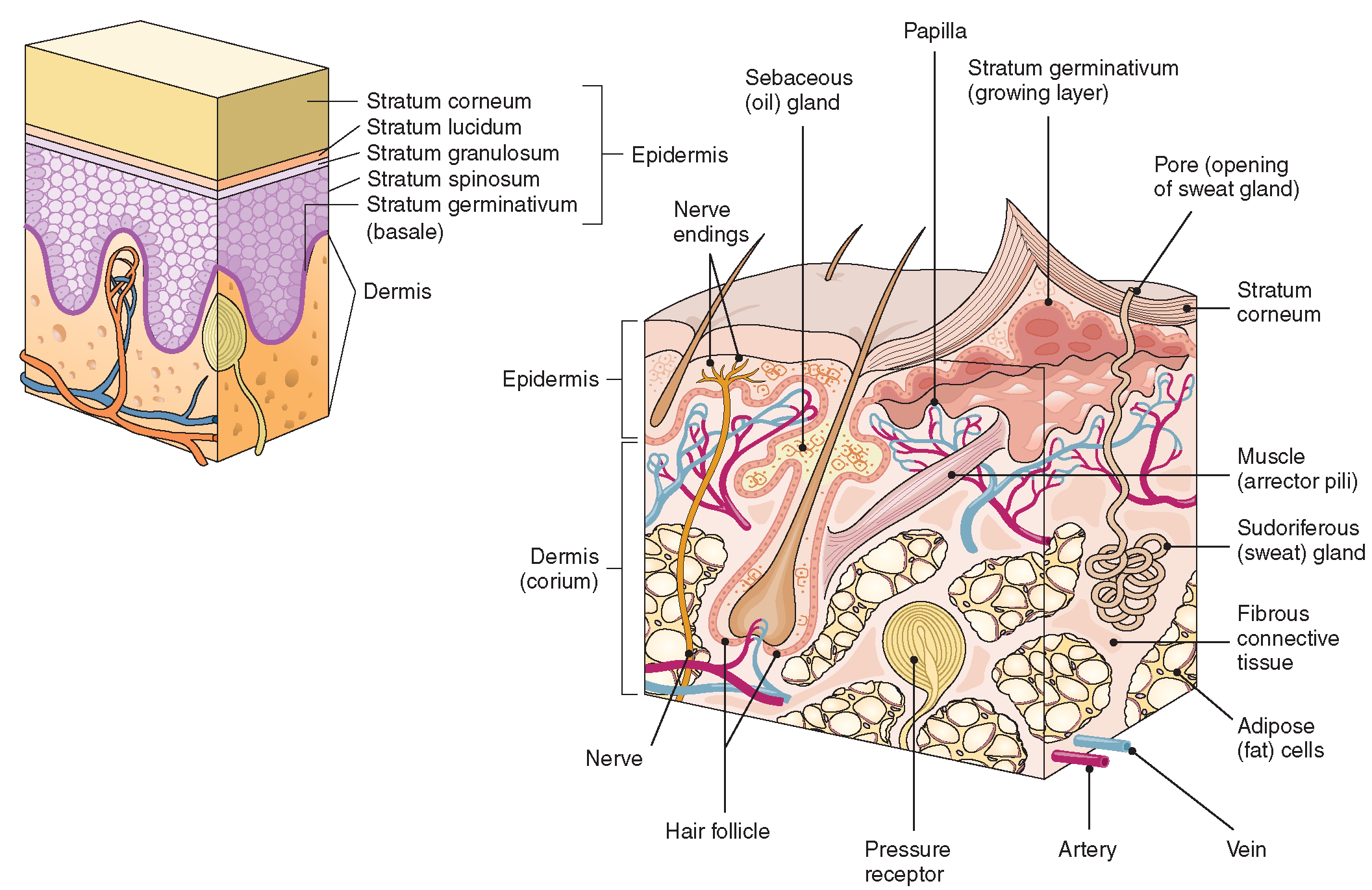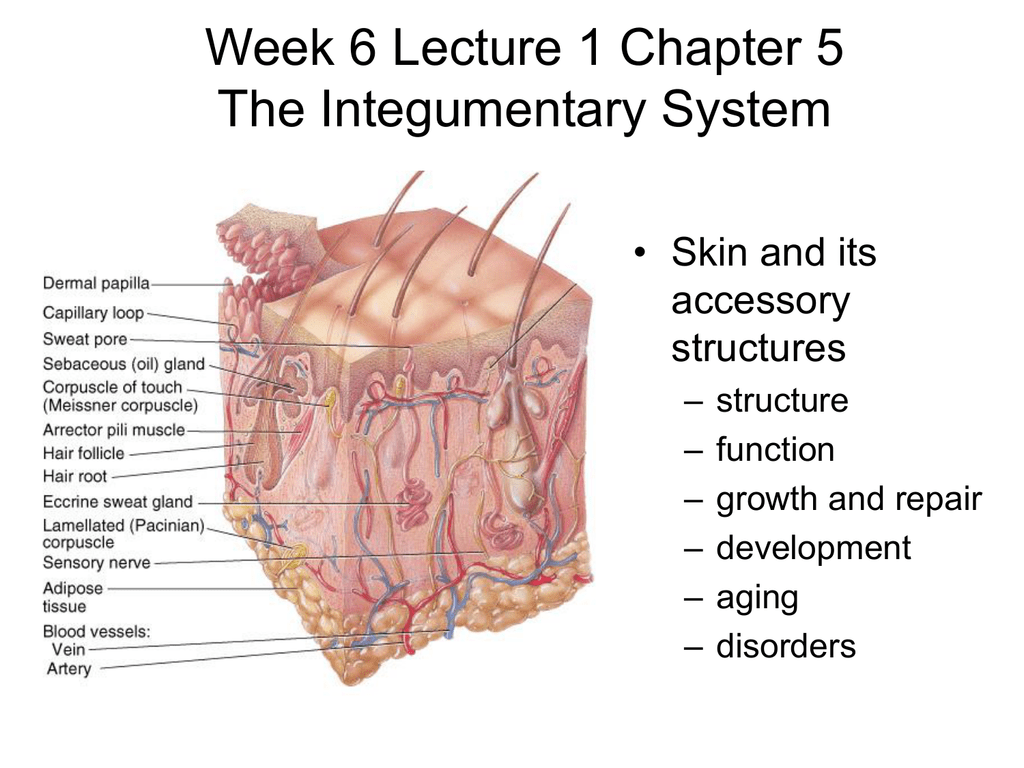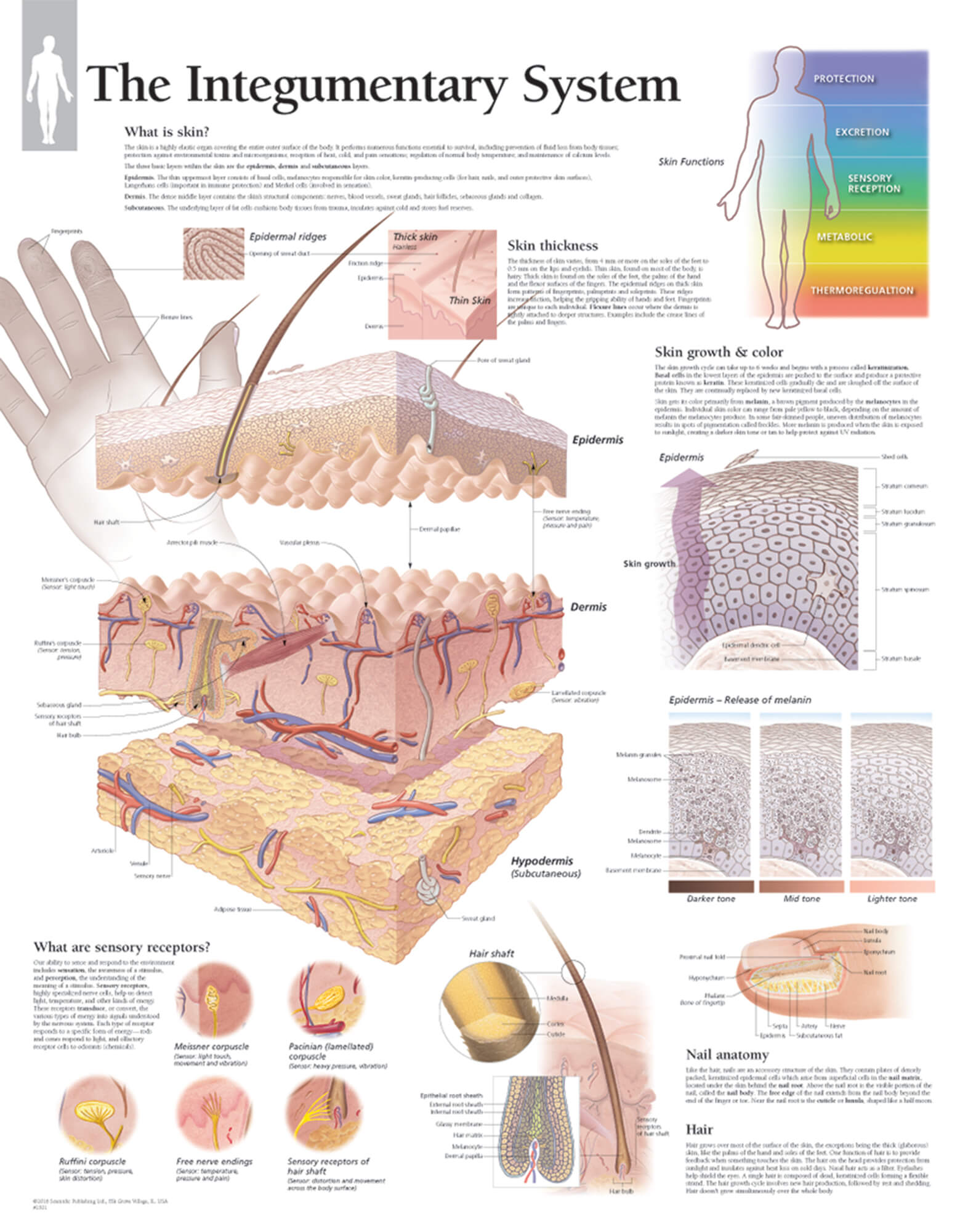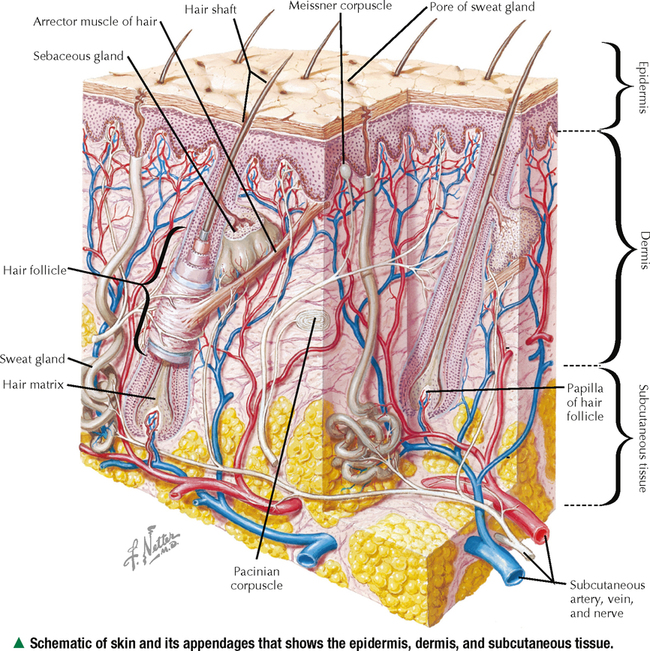Integumentary System Drawing
Integumentary System Drawing - Web learn about the skin, hair, nails, glands, and nerves that make up the integumentary system, the body's outermost layer. The skin is the largest organ in the body. Identify the components of the integumentary system describe the layers of the skin and the functions of each. See how the skin protects, senses, and regulates your body, and explore. Web the integumentary system is the body's first line of defense against bacteria , viruses, and other pathogens. Web this extraordinary organ system : Web identify the components of the integumentary system; Web learn about the integumentary system, which includes the skin, hair, nails, and glands. Describe the layers of the epidermis and. Web anatomy of the integumentary system. Find out how it protects, regulates,. 118k views 5 years ago. Web learning objectives by the end of this section, you will be able to: Web the two main layers of the skin: Describe the layers of the skin and the functions of each layer; Find out how it protects you, regulates your temperature, absorbs. The thinner outer layer called the epidermis and the thicker inner layer called the dermis. Web describe the functions of the integumentary system. Describe the layers of the skin and the functions of each layer; This video is useful for biology and medical students who want to know the structure. Web learn about the integumentary system, which includes the skin, hair, nails, and glands. Find more information about skin structures: Web the integumentary system explore the system that includes the largest organ in the human body. Use 3d models and accompanying detailed descriptions to. Web identify the components of the integumentary system; Web learning objectives by the end of this section, you will be able to: Use 3d models and accompanying detailed descriptions to. Web learn about the integumentary system, which includes the skin, hair, nails, and glands. Web the two main layers of the skin: Web identify the components of the integumentary system; Find out how it protects, regulates,. Web learn about the integumentary system, which includes the skin, hair, nails, and glands. Web anatomy of the integumentary system. Web learn how to draw a human skin diagram with step by step instructions and labels. We made flashcards to help you review the content in this episode! Web learn about the skin, hair, nails, glands, and nerves that make up the integumentary system, the body's outermost layer. Describe the layers of the skin and the functions of each layer; Web identify the components of the integumentary system; The thinner outer layer called the epidermis and the thicker inner layer called the dermis. In addition to the skin,. Web the integumentary system the integumentary system is made up of the skin, hair, nails, sweat glands, and sebaceous glands. Describe the different functions of the skin and the structures that enable them; Web learn about the skin, hair, nails, glands, and nerves that make up the integumentary system, the body's outermost layer. The skin is the largest organ in. Web learn about the integumentary system, your body’s outer layer that consists of skin, hair, nails and glands. Web the integumentary system the integumentary system is made up of the skin, hair, nails, sweat glands, and sebaceous glands. Web learn about the integumentary system, which includes the skin, hair, nails, and glands. Find out how it protects you, regulates your. Identify the components of the integumentary system describe the layers of the skin and the functions of each. Broadly speaking, the integumentary system is composed of skin and its appendages, subcutaneous tissue, deep fascia, mucocutaneous junctions, and breasts. It also helps provide protection from harmful ultraviolet. Use 3d models and accompanying detailed descriptions to. Web identify the components of the. Web identify the components of the pilosebaceous apparatus and know the structural and developmental relationship between each component and the epidermis of the skin. Identify and describe the hypodermis and deep fascia;. The skin is the largest organ in the body. Web the integumentary system explore the system that includes the largest organ in the human body. Web identify the. Web learn about the skin, hair, nails, glands, and nerves that make up the integumentary system, the body's outermost layer. Web learn about the integumentary system, your body’s outer layer that consists of skin, hair, nails and glands. Web the integumentary system the integumentary system is made up of the skin, hair, nails, sweat glands, and sebaceous glands. The thinner outer layer called the epidermis and the thicker inner layer called the dermis. Explain how the skin helps maintain body. Broadly speaking, the integumentary system is composed of skin and its appendages, subcutaneous tissue, deep fascia, mucocutaneous junctions, and breasts. Web identify the components of the pilosebaceous apparatus and know the structural and developmental relationship between each component and the epidermis of the skin. Find out how it protects, regulates,. Web describe the functions of the integumentary system. Use 3d models and accompanying detailed descriptions to. In addition to the skin, the integumentary system includes the hair and nails, which are organs that grow out of the skin. Describe the layers of the epidermis and. Find more information about skin structures: Web learn about the skin and its appendages, such as nails, hair, and sweat glands, in this video overview. See an infographic that shows the anatomy and features of the. Protects the internal structures of the body from damage.:max_bytes(150000):strip_icc()/skin_structure-592308b15f9b58f4c0153a00.jpg)
The Layers of the Integumentary System

The Skin

The Integumentary System (Structure and Function) (Nursing) Part 1

INTEGUMENTARY

Diagrams The integumentary system

Anatomy Of Integumentary System Anatomical Charts & Posters

7 Facts About the Integumentary System Every Nursing Student Should Know Nursecepts

How To Draw Skin Layers Integumentary System step by step drawing YouTube

INTEGUMENTARY SYSTEM Basicmedical Key

7 Facts About the Integumentary System Every Nursing Student Should Know Nursecepts
Web The Integumentary System Is The Body's First Line Of Defense Against Bacteria , Viruses, And Other Pathogens.
We Made Flashcards To Help You Review The Content In This Episode!
Describe The Layers Of The Skin And The Functions Of Each Layer;
Web Learn About The Skin, Hair And Nails, The Largest Organ In The Body, And Its Functions And Layers.
Related Post: